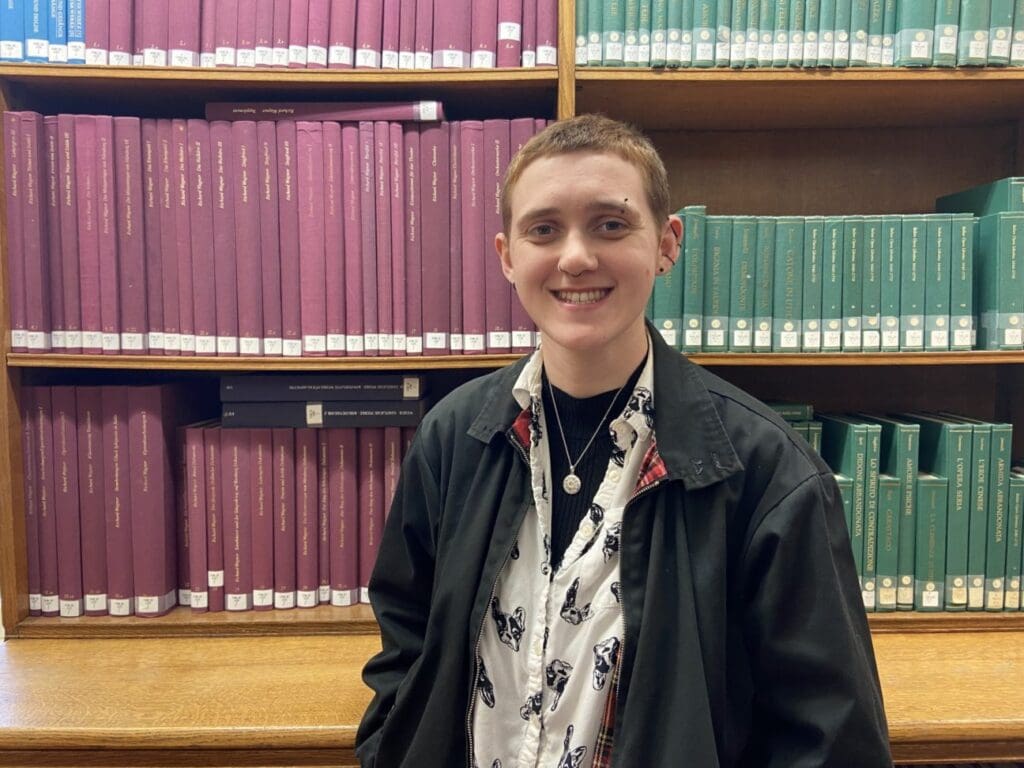
The most common definition you probably hear for lesbian is “a woman who is only attracted to women”.
Of course, that works for many people but I, instead, use lesbian to describe how I feel about my gender as well as my sexuality. I also see myself under the non-binary umbrella.
We all have our own unique experiences with gender identity and sexuality and we each get to define our identities on our own terms, of course. It’s also important to know that lesbians can also be attracted to non-binary people, and lesbian identity – in my eyes – has always included non-binary people.
Gender, to me, is incredibly complex and nuanced, but I use the word lesbian to describe my gender because I feel a disconnect from womanhood.
Gender is very cultural, and for me, my gender is about how I feel and how others understand me, and by not being attracted to men I don’t behave like a ‘woman’ is expected to, nor do I feel like one.
When I was small there was a certain expectation about how I would grow up and live my life.
“From as young as fifteen it was clear to me: I wasn’t a girl.”
I could do anything I dreamed of as far as career, appearance, or hobbies, but if I were to date, get married, or build a life with someone, I got the clear message that they should be a man.
In my eyes, our expectations of ‘man’ and ‘woman’ are so often built on the ideas of heterosexuality and it’s expected of us that we’ll be straight.
Even before I had the language to describe it, I knew that being a lesbian would have an unquestionable impact on my gender identity.
When I first came out to my friends at school, I was adamant “but I’m still a girl” as I was still desperate to fit in with my friends.
But I knew that from the moment I came out that my gender identity was inescapably linked to my sexuality, that from that point on I would be seen as ‘different’.
At school, I was seen as boyish, and I knew that I would never be a ‘woman’, but I didn’t have the language to describe who I was, and neither did my friends.
Instead, we expressed it in other ways. My friends would often say things like “you’re not a girl, you’re just Niamh” or “I forget that you’re a girl sometimes, I kind of see you as genderless”.
From as young as fifteen it was clear to me: I wasn’t a girl.
As an adult, when I am around my friends who identify as women, it’s still clear that we are not the same. I feel intrinsically different from them.
Growing up, it felt like other girls were given a handbook on how to be a girl and I’d missed out, and this feeling has continued into adulthood.
Many of my closest friends are women, but there are certain things they don’t understand about me, and that I don’t understand about them.
When I’m around my friends who identify as non-binary, in particular non-binary lesbians, I relate to them in ways I can’t to my friends who are women.
A lot of people say to me that I can still look and behave the way I do and still be a woman, and this is true, but it isn’t just my gender non-conforming appearance and behaviour that makes me feel different from women.
Society views heterosexuality as the norm, and gender fits into that, men fall in love with women, women fall in love with men, but because I exist outside of this expectation, I feel disconnected from these ideas of gender entirely.
For me, my gender identity is also linked to how others perceive me, and how I want to be perceived, and I don’t want to be perceived as woman, I just want to be perceived as a lesbian.
I also know that a lot of other people don’t see me as a woman either, even if they don’t understand why. When a lot of people first meet me, they don’t see me as a woman, but as a lesbian, and I find that really affirming.
Describing lesbian as both my gender identity and sexuality feels like the best way to express my identity. Not all lesbians feel the same way I do of course, but that’s just what fits for me.
Explaining my identity to people can sometimes be a difficult conversation to have, but it’s not as complicated as people think.
We all have our own unique life experiences, and being a lesbian is just a part of mine.
